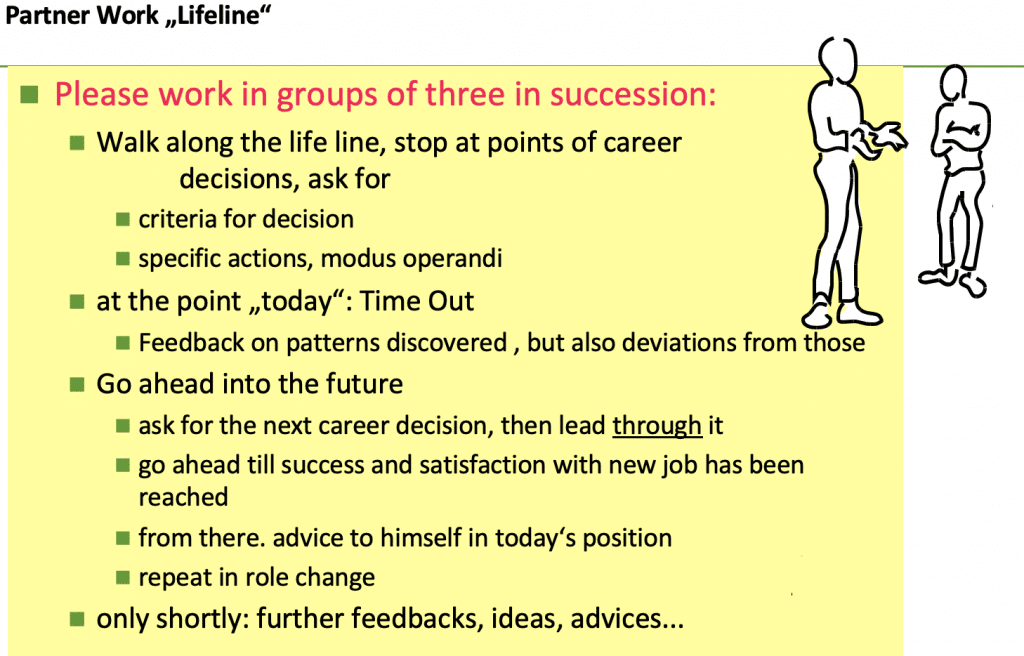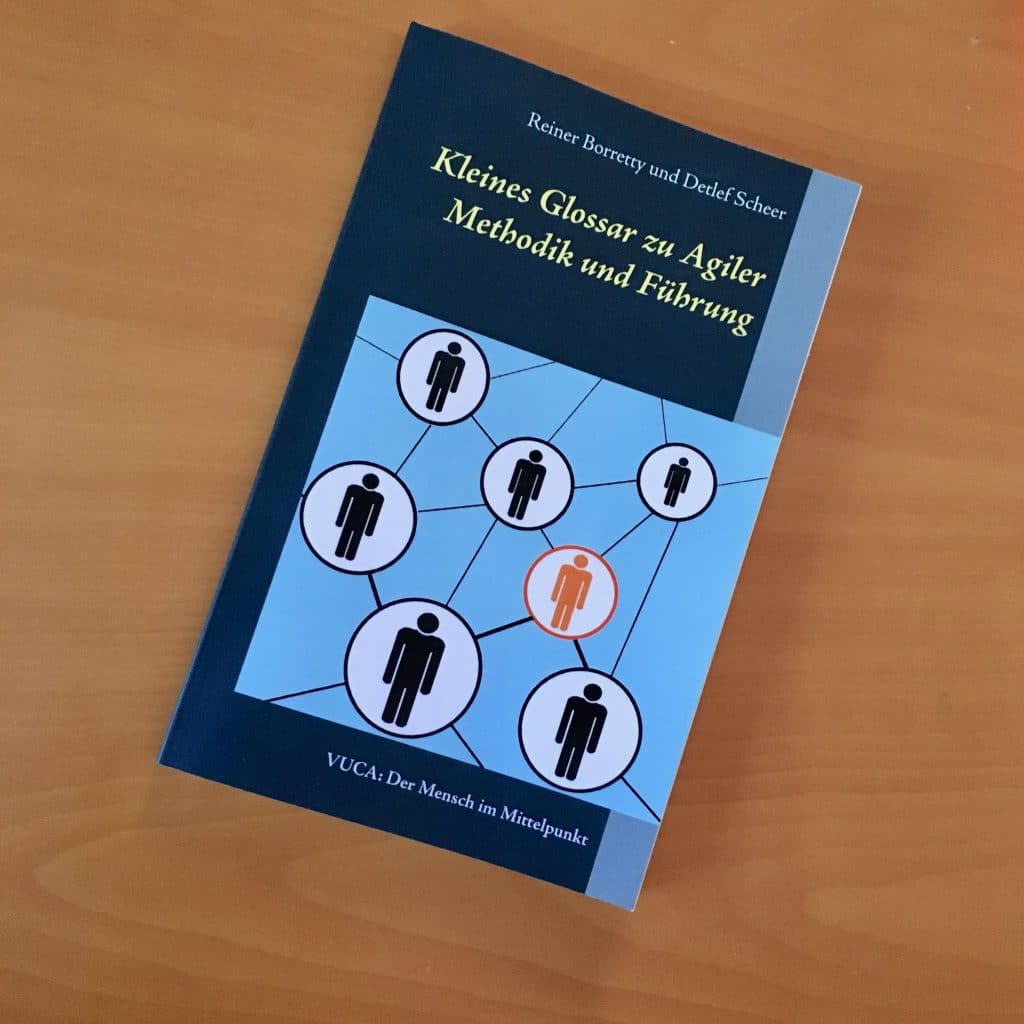Coaching and consulting are equally ambiguous terms. Coaches in football and other sports, tutors in scientific training, and also managers and project managers are likewise referred to as coaches. And they aldo see themselves as such. There are, furthermore, also consultants for almost every discipline. Yet, coaching and consulting are by no means the same! Both may overlap in practice, but the difference will be worked out here.
Coaching and Consulting: Two Sides of the same Coin
A clear understanding of Business Coaching ...
Business coaching for executives and consulting are certainly not the same; they may not differ in form, but in logic! Coaching is firstly about the development of solutions guided by questions and the autonomous development of a client (“coachee”). The goals can be, for example, the completion of personal complex tasks, professional development (career coaching) or the development of new skills. On the other hand, professional advice (strategy advice, process advice, career advice, in change management) provides theories, suggestions for measures, tips or other information. All this surely using scientific approaches.

... and empathy in career coaching
Career coaching topics start with the application process, secondly with the planning of internal sidesteps and promotions, in the long run a targeted change of employer or the evaluation of sudden external offers. And it ends, finally, with the exit from professional life, or the return to it. But other events are really critical: perceived career plateaus, change of boss who does not develop well, new colleagues who turn out to be challenging one’s position or simply unsympathetic; or a former trainee returns as one’s new boss after a short assignment abroad.
Listening!
You can surely put it all aside or dismiss it as insignificant – but it still rankles! As I understand it, career coaching also has the purpose of allowing grieving. Or to open a valve for anger. So to reduce frustration… Listening is the key coaching skill here! But furthermore it’s about expressing understanding, which is more than the succinct sentence “I can understand that well”! Only then do I move on to reflecting on the status quo and finally looking ahead to the future.
Coaching as Process
Coaching as a process: In a (not too long) sequence of personal discussions of at least 60 minutes each, or up to 120 minutes, the topics desired by the coachee (business coaching for executives, career coaching) are dealt with. In oder to do so, questions asked by the coach are the central method here. This is indeed the core of coaching competence. Of course, “he who asks leads” still applies here – while this asking is not at all done with a leading intention. Rather, the client’s answers are taken up and further explored through follow-up questions; especially the systemic asking has developed into a methodology of its own.
Basically, the coaching conversation can meander in all possible directions. But the GROW model represents a certain sequence: Goal – Roadblocks – Opportunities – Will. In other words target/goal – reality check – possibilities – will to implement.
Structure of a Coaching Dialogue
Firstly, Goal names the topic, expressed as a goal. The term contract is usually used for this. Obviously, the clearer I can work it out in the beginning, the more creative and shorter the conversation will be. But be careful: sometimes the client cannot express his or her key question, and it only becomes clear in the course of the conversation. Surely the goal then changes, or is further developed, thus jumping back to the starting point from a later phase.
Secondly, the reality of the coachee must first be worked out. Of course gaining insight (Kurt Lewin) is possible here. However, roadblocks is the more accurate word here: what stands in the way of achieving the goal? For example, I ask as a starter: Why don’t you just do it? In contrast, the understanding of past causes is less important to me!
Questions as core of Coaching Competence

Of course, the methodological basis of business coaching as well as career coaching is asking questions – clear w-questions, what, how, with what, why. Obviously only one question at a time. Interviewers and moderators on TV are not role models in this respect! In addition, there is the broad spectrum of systemic questions – see the box on the right:
- Open questions aim to gain a lot of information: “Who, where, what, how, with what, for what purpose …?”
- In addition, scaling questions determine the importance of a question: “On a scale from one to five, how important …”
- Then again, hypothetical questions test possibilities: “Could it be that …?”
- Resource-oriented questions, meanwhile, draw attention to experiences, successes, skills: “How have you already managed …?”
- On one hand, “Angel questions” instead help to develop goals and wishes: “If a fairy came …?”
- On the other hand, “devil’s questions” direct our attention to wrong and, conversely, correct steps. “What could you do to make the situation worse?” – The best answer I ever got to this question was “Carry on like this.”
- “Circular” questions open the perspective onto other persons’ views: “What would … say?”
Not just questions ...
When coaching, however, it can be appropriate to express understanding, as this allows the coachee a breather. I like to repeat what the Coachee has said, or sometimes even say “I know that too” or “This has also happened to me now and then”. I also smile …
But now is the time for creative ideas! After all, the client is looking for solutions to his problem, thus it’s done quite like a brainstorming session. It is particularly important to me that the coachee develops suggestions by her- or himself. And not myself as coach. of course, this makes it easier for him or her to implement, afterwards.
Finally, I like to summarize and show the bandwith of solutions on the table.
Only when enough approaches towards the solution have been developed do I move on to the fourth phase. In order to do so, I guide the client’s will towards implementation. It is consequently important to me that specific plans for action are created. And not just new attitudes, “good intentions” or some new general behavior. Or, worse, the actions of others…
Aspects about Business Coaching and Consulting

The ``Life Line``
I like to use the Life-Line exercise for this. On the one hand, already in the training on professional upheaval situations “Off to new shores!”, where at least small groups are keen to ask further questions and give more advice, and also in coaching sessions. To do this, I encourage the client (“coachee”) to walk along a straight line representing their previous (professional) life. (In eCoaching this is just as possible: the client walks just as well in his or her home office or living room – he or she just has to be careful not to walk out of the zoom angle.) I ask questions as often as possible on the decisions made, so as to make patterns in decision making clear to the coachee (more so than me!). These can show strengths or initiate reflection on alternatives.
Special Methods in Career Coaching
In addition, there are special exercises and procedures, especially in career coaching, in order to reflect on certain topics further and more deeply. This as a kind of proof of deeper methodological and coaching competence. For example, setting up the structure of relationships, “Life-Line” for dealing with questions about careers, the 16pf or MBTI to clarify one’s own traits or preferences, an instrument to reflect on work-life balance…
Typical topics of coaching are:
- First and foremost, the creation of personal relationships, also with employees, superiors, customers …
- Furthermore the planning and decision of next steps in one’s career,
- also practicing new behavior and acquiring new knowledge as well as ways of learning,
- and finally the reflection of one’s own convictions.

Coaching vs. Consulting: Coaching does not counsel!
Meanwhile, the principle and methodological core of coaching is the great restraint of the coach. She or he thus advises, explains, supports, intervenes, provokes, but does not train! Rather, the focus is on (self-)reflection, understanding, the development of practical action and alternatives based client’s competencies. What is the use, then, of leaving all this to him or her? Psychodrama, for example, has a flippantly formulated explanation here: “Situative stupidity when it comes to oneself”! And overcoming this is finally what it’s all about!
Experts consult
On the other hand, managers, specialists, internal and external consultants sometimes have an advantage in terms of knowledge or experience. Then it may be their job to “get this out of” their colleagues and clients by asking questions. And so this can follow the same logic and structure as a career coaching or business coaching conversation. However, a consultation will pursue its own goal and content. If the client comes up with the solution him- or herself, the chance of implementation is obviously so much higher. But that can also have a manipulative effect: one senses the intention and gets upset.
Coaching and Consulting: experts are more directive
Sometimes more may be needed: a technical talk, moreover a formal instruction or lecture, possibly even a lesson. The bigger the difference to the client’s competencies, the more likely it is that the consultant will want or have to share her or his knowledge, finally:
- determining the corporate or functional strategy, in order to further develop your own business or tasks,
- secondly streamline of the organization (structural and process organization, processes…),
- furthermore Introduction of new, agile methods, “lean”, TQM or Total Cycle Time,
- give a career outlook (recommending next steps, hints at vacancies…)
- and also concrete questions and projects, as a result to prepare for decisions.
Topics can “fit” to both coaching and for consulting. So before starting, to clarify this is extremely important. Conversely, a shift in focus may become necessary as the dialogue progresses. But it is the coach’s job to make this clear to both of them. Otherwise advice can easily become command …

Coaching and Consulting virtually
Coaching and consulting of course had to take place in home office for a long time under COVID-19. However, I have learned in career coaching and business coaching via Zoom or MS Teams that this is not as bad as thought before. And – I am a certified eCoach, finally! I explain more about it via this link. The training modules were not only about the new setting, but also about building relationships and trust as well as showing methods and scenarios virtually after all.
But when it comes to advice, things are obviously different: observe on site, collect key figures, understand the whole scene – that’s indeed hardly possible from home office! However, evaluating the numbers, drawing conclusions, developing an idea, casting the idea into a presentation: this was also possible from the home office. Thinking and talking things through with colleagues in order to find insights and solutions – that worked as well as before! A dilemma: if it is true that companies, especially plants that are extremely well managed are coping as well with the topic of COVID, the reverse is also true! And what is there left to advise on in extremely well-managed companies?
